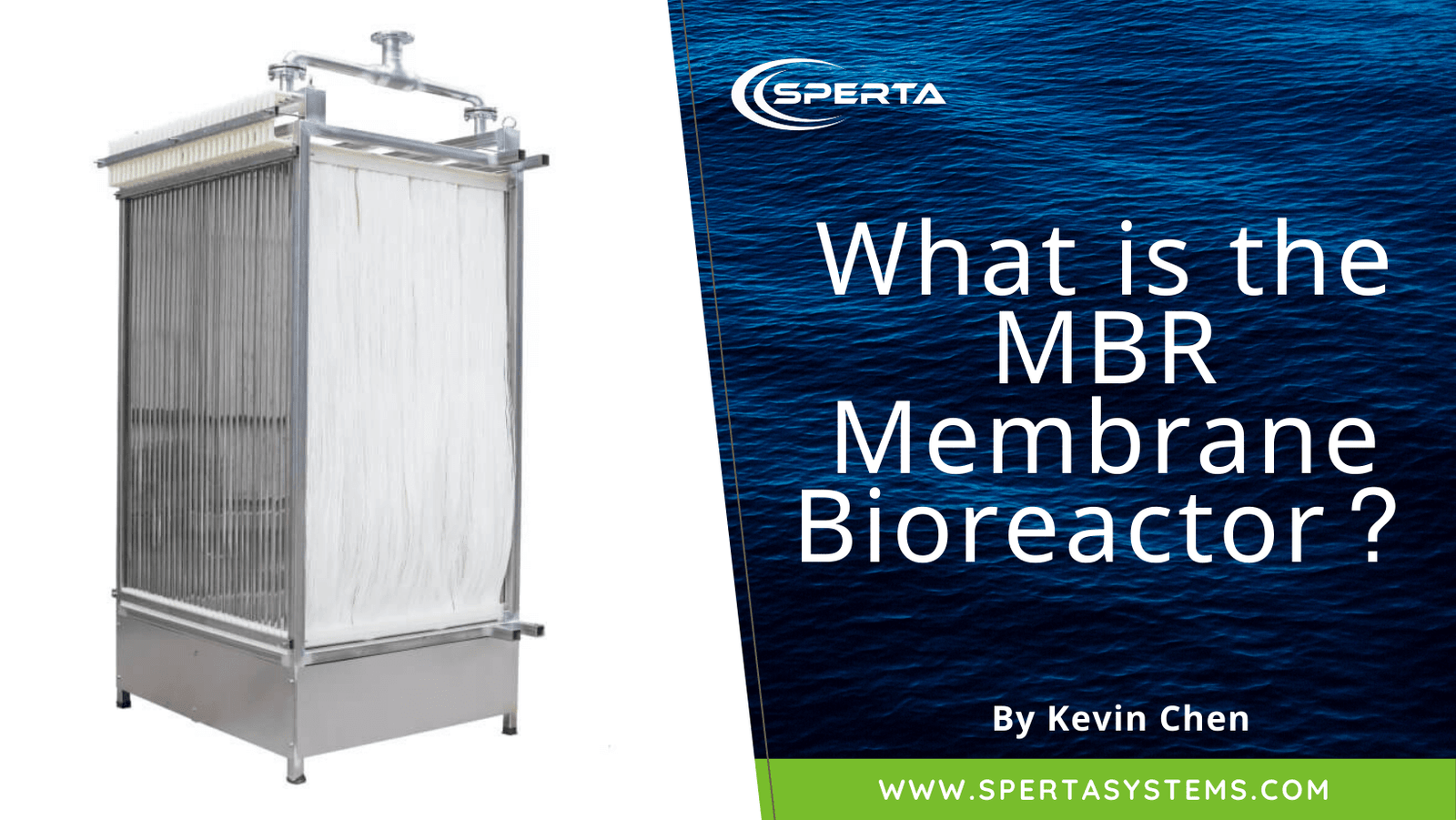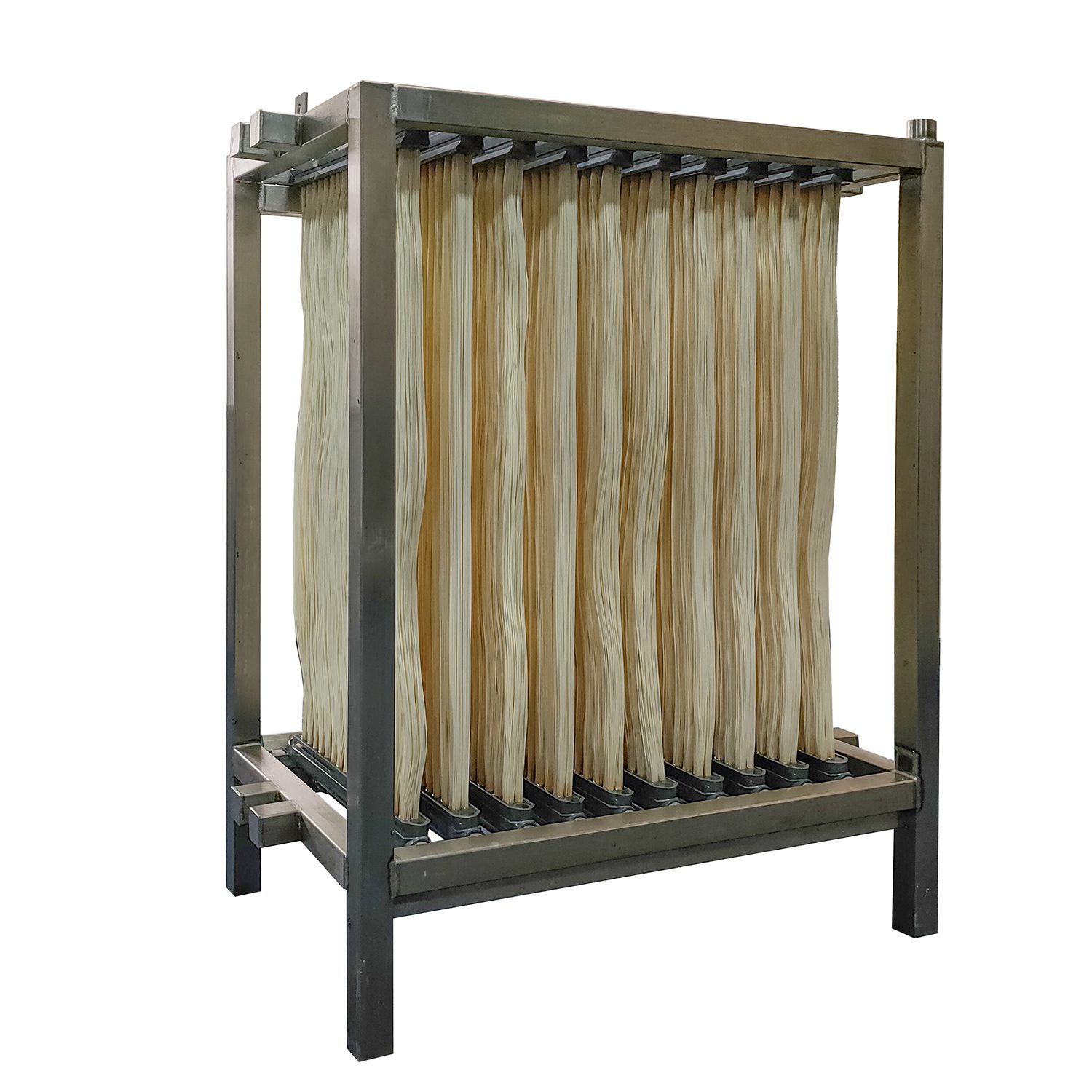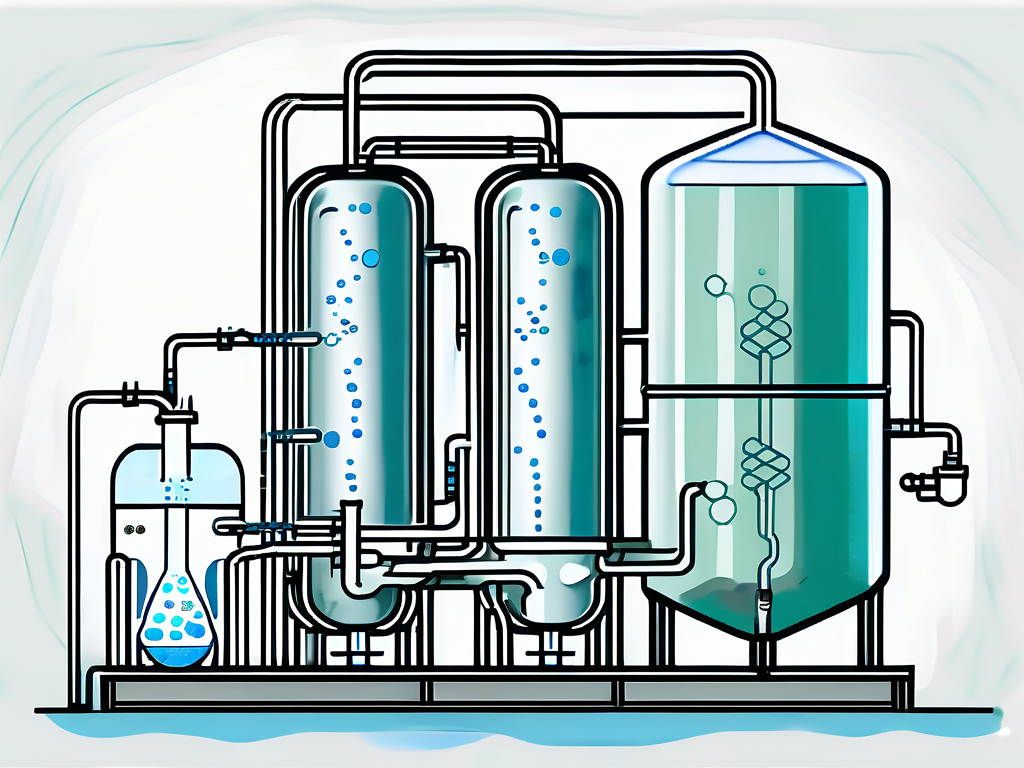Exactly How Membrane Layer Bioreactors Are Revolutionizing Water Purification Equipments
The emergence of membrane bioreactors (MBRs) represents a considerable innovation in the field of water purification, combining biological therapy processes with sophisticated membrane filtration innovations. This integration not only boosts the quality of treated effluent however additionally addresses city area restraints, making MBRs especially appropriate for densely populated locations. As global water scarcity increases, the role of MBRs in helping with potable water reuse and sustainable water administration ends up being progressively important. Yet, the effects of this innovation prolong beyond performance-- what chances and obstacles exist ahead for its widespread execution?
Review of Membrane Bioreactors
Membrane bioreactors (MBRs) represent a substantial innovation in water filtration technology, as they incorporate organic therapy procedures with membrane layer filtration. This combination improves the performance of wastewater therapy by making use of microbes to degrade organic contaminants while concurrently employing semi-permeable membrane layers to different cured water from put on hold solids and pathogens.
The MBR system generally consists of an organic reactor where the microbial population metabolizes pollutants, adhered to by a membrane layer purification system that preserves biomass and permits just tidy water to go through. This double capability leads to higher effluent high quality contrasted to standard treatment methods. MBRs can be run in both batch and continual flow settings, providing versatility in style and application.
Additionally, MBRs are characterized by their small impact, making them ideal for urban setups with room restrictions. Membrane Bioreactor. They additionally allow the recovery of water for reuse, therefore adding to water sustainability campaigns. While MBR modern technology has acquired popularity in industrial and community applications, its operational intricacies and energy demands necessitate mindful consideration throughout application. Overall, MBRs are at the forefront of boosting water therapy efficiency and high quality, showcasing the potential for innovative solutions in ecological administration.
Benefits of MBR Technology
The integration of organic treatment with membrane filtration uses numerous advantages for water purification procedures. Among the main benefits of Membrane Bioreactor (MBR) technology is its capacity to successfully eliminate both organic and inorganic pollutants, causing high-quality effluent. The membrane layers work as a physical barrier, avoiding put on hold solids and microorganisms from passing through, which improves the overall safety and reliability of treated water.
In addition, MBR systems require a smaller sized impact compared to standard treatment methods, allowing for a lot more efficient space utilization. This small layout is specifically beneficial in urban setups where land is restricted. MBRs additionally show operational adaptability, suiting differing influent high qualities and flow prices without significant performance degradation.
Furthermore, the process offers improved nutrient elimination abilities, particularly for nitrogen and phosphorus, which are critical for preventing eutrophication in receiving waters. The lowered sludge production connected with MBR innovation likewise equates to lower disposal expenses, making it an economical solution in the long run - Membrane Bioreactor. In general, the advantages of MBR modern technology position it as a leading selection for innovative and sustainable water purification systems, attending to both ecological and economic problems
Applications in Water Purification
Applications of Membrane Layer Bioreactor (MBR) technology in water purification are varied and impactful, resolving numerous therapy needs throughout multiple fields. MBRs effectively combine biological therapy processes with membrane layer purification, making them excellent for municipal wastewater therapy, industrial effluent administration, and also potable water reuse campaigns.
In municipal setups, MBRs are increasingly employed to improve the high quality of treated wastewater, permitting for compliance with stringent discharge guidelines and facilitating the recycling wikipedia reference of water for irrigation and non-potable usages. Their portable design likewise makes them suitable for urban environments where space is restricted.
Industrially, MBR innovation is used to treat procedure water and wastewater, specifically in industries such as food and beverage, drugs, and textiles. By successfully removing pollutants and suspended solids, MBRs aid industries minimize ecological effects while recouping valuable resources from wastewater streams.
Additionally, MBRs are acquiring traction in decentralized water therapy applications, where small-scale systems can be deployed in remote locations or developing areas. This adaptability allows neighborhoods to accomplish lasting water monitoring services, boosting access to tidy water while lowering reliance on typical treatment approaches.
Study and Success Stories

In another example, a fabric manufacturing center in Bangladesh embraced MBR modern technology to address its wastewater obstacles. The system minimized chemical oxygen demand (COD) levels from 1,200 mg/L to less than 100 mg/L, thus satisfying regulative requirements and significantly reducing environmental impact.
The College of Cape Community's MBR installment has actually confirmed reliable in dealing with greywater for non-potable reuse on school. This project not just saves drinkable water yet likewise works as an educational version for lasting methods.
Moreover, a seafood processing plant in Norway utilized MBR technology to treat effluents containing high levels of organic matter, attaining over 90% contaminant removal. These instance research studies emphasize MBR modern technology's adaptability and its vital role in boosting water high quality throughout diverse applications.
Future of Water Treatment Solutions
As international water shortage and pollution difficulties magnify, ingenious water therapy remedies are becoming increasingly necessary to make certain lasting accessibility to tidy water. The future of water treatment lies in the assimilation of innovative technologies that boost the effectiveness and efficiency of filtration procedures. Membrane bioreactors (MBRs) go to the forefront of this evolution, incorporating organic therapy with membrane filtering to generate top quality effluent ideal for various applications.

Arising patterns such as source recuperation from wastewater, consisting of nutrients and power, will certainly additionally change treatment centers into eco-friendly hubs. Moreover, developments in nanotechnology and membrane layer products promise improved efficiency and durability of filtering systems.

Verdict
Their function in safe and clean water reuse and lasting water administration highlights their value in resolving worldwide water deficiency difficulties. Proceeded research study and development will better enhance click the efficacy and fostering of use this link MBR modern technology, guaranteeing a durable future for water treatment services.
The introduction of membrane layer bioreactors (MBRs) stands for a considerable advancement in the field of water filtration, combining organic treatment procedures with cutting-edge membrane filtration innovations. As worldwide water deficiency magnifies, the function of MBRs in helping with drinkable water reuse and sustainable water monitoring ends up being significantly critical. They additionally allow the recovery of water for reuse, therefore adding to water sustainability efforts.As international water shortage and contamination difficulties intensify, innovative water therapy options are ending up being increasingly crucial to ensure sustainable access to clean water. Their role in drinkable water reuse and lasting water monitoring highlights their importance in addressing global water shortage difficulties.